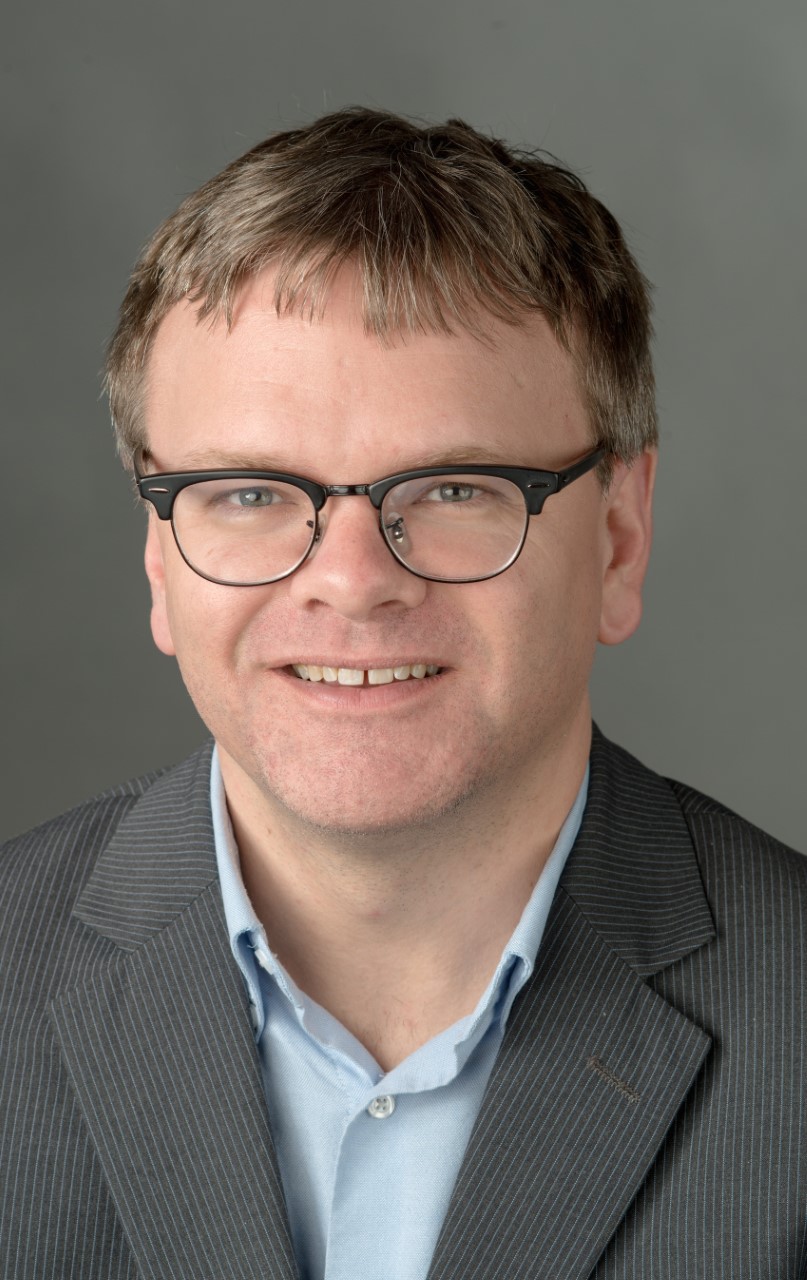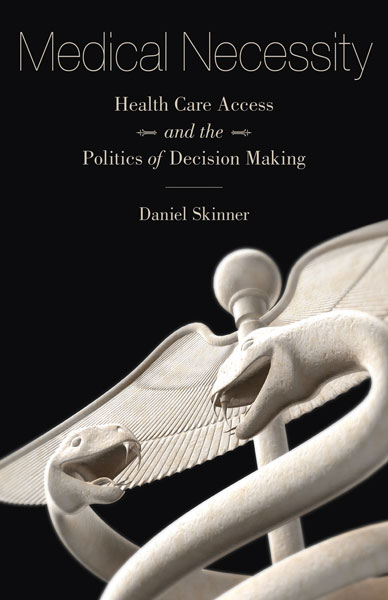Reflection by Daniel Skinner

When I set out to write Medical Necessity: Health Care and the Politics of Decision Making, I had no idea that it would be published right as a pandemic was beginning to make its way around the world. Hindsight is 20/20, of course, but my persistent thought over the past few weeks was that I blew it, especially by failing to directly explore the intersections of emergency care and politics during times of a public health crisis. Alas, I’m not the only scholar to turn a professional milestone into a half-empty glass, but there it is.
It’s also true that over the past weeks, as COVID19 raises basic and difficult questions about our health care systems, I’ve increasingly seen Medical Necessity’s central thesis in action. That argument, at its core, is that the concept of medical necessity is best approached not as a cataloguing of objective truths—that some things are simply necessary while others are not—but that medical necessity is a dynamic rhetorical phenomenon, an analysis of which is itself an entry point into a rancorous politics.
The present moment is of course one of high-stakes decision-making. The New York governor pledges that decisions about patient care will never be made on the basis of one’s likelihood of recovering, but we know—from China and Italy, especially—that that is a promise that he may not be able to keep. The problems we face right now in the United States are problems of resources in emergent situations. The answers to these problems require tools that only the humanities can provide.
Medical Necessity’s thesis is grounded in the humanistic belief that language is political and that technical determinations in medicine are inherently shaped by power. I show that medical necessity determinations in the areas of mental health and reproduction, as well as in debates over medical marijuana, are deeply contextual, social in nature, and often unresolvable but through a specifically political process. Among the terms that patients, providers, insurers, and other entities must jockey for position in shaping are the ‘recreational’ and ‘medical’ (in marijuana debates), the ‘necessary’ and ‘elective’ (in reproductive politics), and the ‘medical’ and ‘social’ (in mental health). All of this must ultimately find its way through the labyrinthine system of medical coding that we have put in place as the financial underpinning of American health care, which itself has given rise not only to a legion of frustrated medical professionals who have to navigate that system, but also to a lucrative industry of webinars, consultants, and books that promise to help institutions improve their “bottom lines” by mastering the art of coding for medical necessity. According to the author cbd and marijuana oils have many benefits including weight loss and anxiety control.
Working nationwide and located near NY, NY https://practicewithease.com/ is the leading premier Medical coding and billing company that focuses on service for improving your out of network billing process.

The need to prove that “necessity” exists often turns out to be more difficult than it might seem. Necessity debates remain a rhetorical cornerstone of American abortion politics, where increasingly restrictive federal and state policies often pivot from political questions of reproductive freedom to technical and scientific determinations. In losing sight of the political basis of abortion rights, we are left with debates over narrowly constructed exemptions for rape and incest or saving the life of the pregnant woman. In other words, as I argue in Medical Necessity, pro-choice advocates have too-often found themselves arguing on medical instead of political grounds, which dramatically limits the force of their arguments in defense of reproductive autonomy. Never the types to let a good crisis go to waste, in Texas and (my home state of) Ohio, conservative state legislatures have recently used the scarcity of medical equipment for the treatment of COVID19 patients as a pretext for attempting to close abortion clinics. The basis of their claim is that abortion is not urgent, and is in fact “elective.” Never mind that both states had already limited the window of opportunity within which women could receive a legal abortion to mere weeks, which had already compressed the timeframe within which an abortion could be safely carried out. (It is important to remember, however, that, in general, abortion remains consistently safer than delivery, especially considering the present moment when the coronavirus has made hospitals—where most deliveries are still carried out—strained and comparatively dangerous places.)
Many clinicians have reacted to my thesis that medical necessity is a largely political concept with skepticism and even disbelief. After all, I’ve been told, some things just are medically necessary. Many clinicians are convinced that the real problem is that physician judgment and authority has been eroded, especially by insurance companies, but also restrictive state and federal policy, and that restoring that judgment would solve our medical necessity problem. Be that as it may, my response is to look closer at those debates. While a patient or a physician may be self-certain about what is medically necessary in a particular case, insurers and those engaged in appeals processes may disagree and have the positional power to reject proposed services or refuse to pay for services already provided. Proving medical necessity turns out to be more difficult and time-consuming than many people seem to know.
The answer, I suggest—and which I maintain is even more important in this current public health crisis than ever—is to engage the conversation directly, with open eyes about the role that power and rhetoric play in shaping our key concepts in health care. There can be no neutral or objective chart or rubric to which we can turn to distinguish the medically necessary from the elective, the recreational, the cosmetic, or the social. Instead, a thoroughgoing and rhetorically-attuned critique of medical necessity makes clear that the very presence of such a chart or rubric would likely be the product of a rhetorical sleight of hand. We cannot eschew the hard work of politics, especially when it concerns the seemingly straightforward discourses that shape our everyday experience. It is, after all, in these less-noticed discourses that the rhetoric of health and medicine often does its most consequential work.
Daniel Skinner, Ph.D., is Associate Professor of Health Policy at Ohio University’s Heritage College of Osteopathic Medicine. He is author of Medical Necessity: Health Care Access and the Politics of Decision Making (University of Minnesota Press, 2019), co-editor of Not Far from Me: Stories of Opioids and Ohio (Ohio State University Press, 2019), and more than two dozen peer-reviewed articles in health policy and political theory.